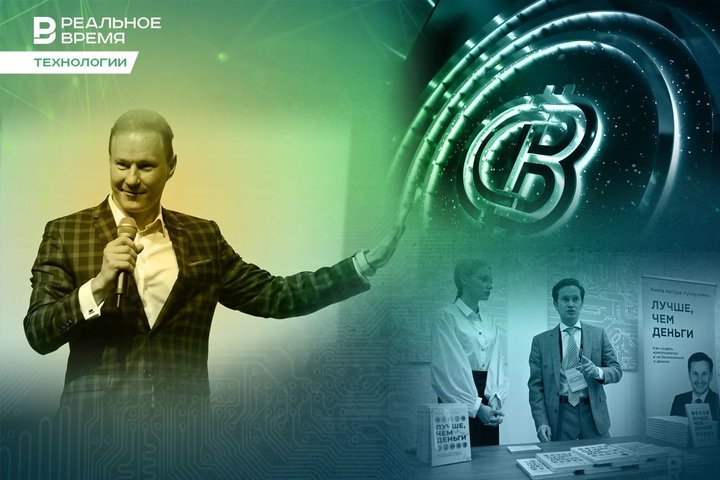CryptoTatarstan: republic wants to create a blockchain sandbox and a mining center

Tatarstan authorities do not lose hope of gaining the status of Russia's first test zone for digital finance and projects. To do this, in 2024, the heads of ministries and departments are going to improve their skills in the field of blockchain, and two working groups are going to appear in the region at once: “Tatarstan — Digital Blockchain Sandbox” and “Tatarstan — Mining Center”. The republic has been promoting the idea of a special crypto zone since 2022, but has not yet found support from the federal center, which is very cautious about such projects. Experts believe that the chances of the republic getting a special status, at least this year, are few: an experiment in Islamic finance is already underway here. Besides, the Central Bank is currently testing its digital ruble and is primarily interested in promoting it.
From cryptopolygon to pilot cryptozone
Tatarstan plans to actively develop digital finance and blockchain in 2024, said Yakov Tenilin, the founder of the Cryptopolygon project. Tenilin refers to the protocol signed by the rais of Tatarstan, Rustam Minnikhanov, according to which a crypto forum will be held in the republic at the end of May with the participation of heads of regions, heads of municipalities and ministries, as well as law enforcement agencies, advanced training courses on the topic of blockchain will be held, and two working groups will be created to implement the initiatives “Tatarstan — Digital Blockchain Sandbox” and “Tatarstan — Mining Center.” Besides, the republic intends to continue the fight for the legalisation of crypto in Russia at the federal level. To do this, the Russian government is planning to send a letter on the creation of a special test zone for digital finance and projects in Tatarstan.
The creation of a special crypto zone in Tatarstan has been discussed for more than two years. This was first announced in January 2022 by the head of the Ministry of Finance of Tatarstan, Airat Khairullin. At the board meeting of the ministry, he proposed to create a pilot zone for testing cryptocurrencies within the framework of two federal laws — on experimental legal regimes and digital financial assets. According to the minister, this would give the opportunity to see how the elements of cryptocurrency market infrastructure interact under state control. However, the republican initiative has not yet found support from the federal center. Largely because of the special attitude towards the Central Bank's crypt.
In 2024, the Central Bank of Russia once again recommended that financial organisations minimise their participation in the turnover of cryptocurrencies, including indirectly through their advertising. They formulated his position in an information letter issued a week after the revocation of the license from Kiwi Bank, one of the reasons for this was money transfers in favour of crypto exchanges. According to the regulator, such operations involve high risks, not only financial, but also involvement in illegal activities for money laundering and terrorist financing. The Central Bank directly advised to exclude the offer of services providing for such operations.
“Blockchain technology should and will develop in Russia”

“At the same time, we are well aware that blockchain technologies and digital finance technologies themselves will and should develop in Russia. Now there are already certain movements in the use of digital financial assets and cryptocurrencies in cross-border settlements," Tenilin noted. “That's why we proposed testing technologies in Tatarstan that allow for cross-border settlements.”
In particular, Tatarstan, according to him, wants to develop crypto-acquiring, which does not imply payment in cryptocurrency but uses cryptocurrency as a means to exchange and further pay for goods and services in rubles. The cryptomat and other projects that use tokenised digital tools have already been demonstrated to Minister of Finance of the Russian Federation Anton Siluanov in the republic.
“Now the tokenisation of the ruble is being discussed very actively both at the level of the Central Bank and at the level of the Ministry of Finance. This is not exactly a cryptocurrency, it is precisely the issue of tokens for the existing ruble, which is equivalent to it in value. That is, it's not even a stable coin, it's some kind of hybrid," said Yakov Tenilin. “Now we are also actively working on this issue, and there are really a lot of technological things where you can track payments and where you can prohibit certain payments.”
The working groups being created in Tatarstan plan to actively interact with deputies from the republic in the State Duma of the Russian Federation to promote these initiatives.
“There is really no goal to legalise mining in Tatarstan, because we see that the bill that is currently being developed is going to the whole Russian Federation, and it will be adopted, and yet we will have this business as a separate type of business or a business that will play by certain rules," he says Tenilin.
But Tenilin already proposes to introduce cryptocurrency and mining into the sphere of exports and international settlements. “In light of recent events, gas exports have become more complicated, and gas is now being sold abroad at a lower cost than it was before. Therefore, we proposed the idea of organising gas exports through cryptocurrency mining. That is, in fact, a gas generator set is installed that consumes gas, generates electricity, connects mining equipment, mines cryptocurrency, and cryptocurrency is sold abroad or used in cross-border settlements," he explains.
Yakov Tenilin proposes to create a mining operator in the republic who will control all processes. As a result, Tatarstan will have a “pure cryptocurrency”, which has not yet been in any of the crypto wallets. “As soon as the cryptocurrency is transferred to wallets, because of their anonymity, no one can guarantee that it has not been used in illegal schemes," he explains.
“It is not so easy to reconcile bitcoin with sharia law”

However, Tatarstan has been participating n an experiment on the introduction of Islamic banking since September 1, 2023, the expert recalls. “Before the completion of this experiment, it is unlikely that they will allow participation in another experiment," Osadchy believes. “Moreover, it is not so easy to 'fit'cryptocurrencies into Islamic banking, to reconcile bitcoin with sharia law.”
The Central Bank of Russia is not enthusiastic about cryptocurrency. “Kiwi Bank's license was revoked, among other things, for conducting high-risk operations aimed at ensuring settlements between individuals and shadow businesses, including money transfers in favour of crypto exchanges," Maxim Osadchy recalled. Moreover, we see that there are no signs of expansion of the cryptocurrency infrastructure in Russia. More recently, there were illusions that the number of cryptomats would be actively increasing, and there are only 75 of them for the whole of Russia so far. “Compare with the USA, where there are more than 30 thousand cryptomats," the expert notes.
Besides, the legislative base of Russia is by no means ready for such experiments, he emphasises. “In our country, cryptocurrency is considered as property, not as a means of payment," Osadchy says. Moreover, the Bank of Russia has recently started testing the digital ruble. “There is a semblance of a conflict of interest: the Central Bank is interested in promoting its digital currency, not the digital currencies of third parties," he notes.
Therefore, the prospects for conducting a crypto experiment in Tatarstan are very vague.